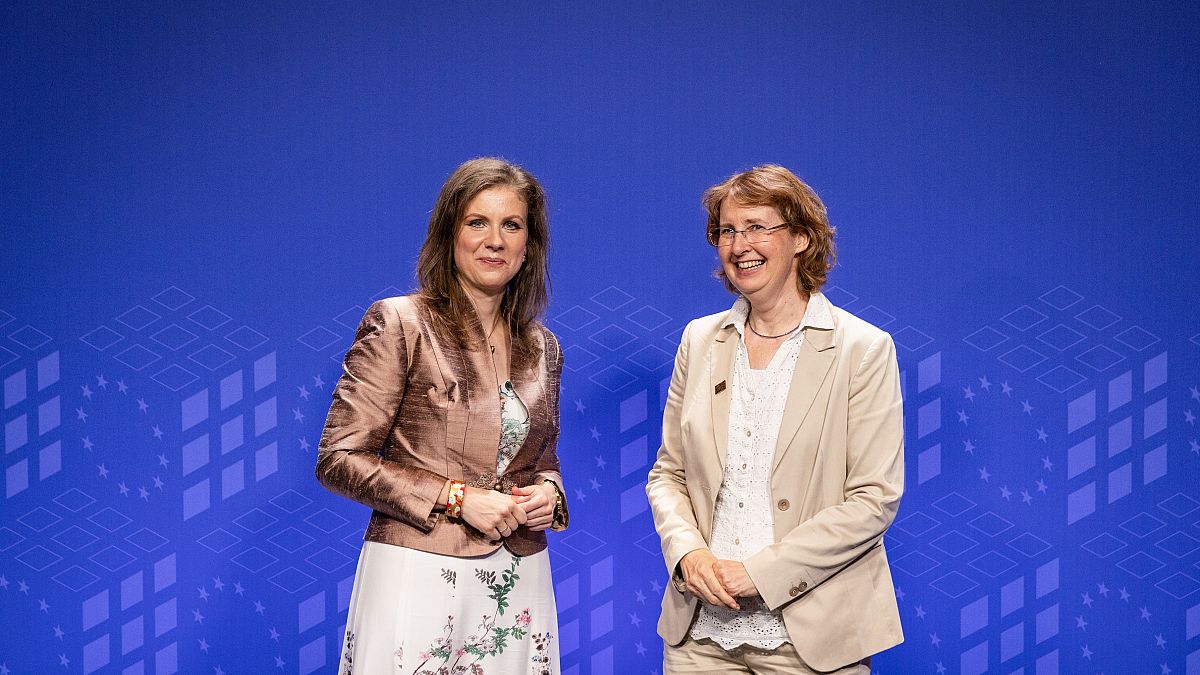Hungary hailed a ‘successful’ first, informal, summit of EU environment ministers and officials during its EU Council presidency, but drew fire from Germany for excluding civil society representatives from the meeting in Budapest.
A two-day informal summit on environment drew to a close today, with host Hungary hailing progress on water resilience and cross border pollution in talks overshadowed by anger at the government’s use of it’s turn as EU Council presidency holder to further its own political agenda.
Hungary invited EU countries to investigate how much cross-border transfer of particulate matter, a harmful form of air pollution caused by burning fossil fuels and road transport, contribute to poor air quality in their own territories, and how much of it they might be exporting to their neighbours, Hungarian environment minister Anikó Raisz said.
“We believe that action against pollution is just as important as combating climate change and preserving biodiversity,” Raisz told a press conference after the meeting.
“Such measurements could be completed by June 2026,” she said, adding that the sharing of the findings could “strengthen cooperation among member states”.
Tackling the issue of water resilience should be placed in the centre of all aspects of policy making, Raisz said, noting the increasing frequency of drought in Europe. Scarcity can trigger conflict, so tackling it should also be seen as an important factor in preventing migration, she said.
“These conclusions, we hope, are going to contribute to the European Commission’s long-awaited initiative on water resilience,” Raisz said.
Countdown to COP29
The meeting also saw several discussions in preparation for the COP29 global climate summit in Azerbaijan in November that Raisz said would be a “great opportunity to broadcast the EU’s point of view to the world”.
After an opening discussion on climate action with presentations from the IPCC and the Azeri presidency of the upcoming COP29 climate talks in Baku, Danish climate minister Dan Jørgensen spoke on Thursday (11 July) of “a productive day in Budapest”. Now Europe must “deliver on a transformative and realistic new finance goal”, Jørgensen said in a social media post.
Presenting its ‘vision’ for the upcoming global summit, the Azerbaijani delegation headed by COP29 president-elect Mukhtar Babayev named the forging of agreement on a “fair and ambitious new climate finance goal” as one of two “mutually reinforcing pillars” alongside supporting governments to raise their climate action pledges and prepare climate adaptation plans (NAPs) and the biennial transparency reports (BTRs) required under the Paris Agreement.
Irish environment minister Eamon Ryan, again via social media, spoke of “truly frightening” data presented by the United Nations Intergovernmental Panel on Climate Change, highlighting global temperature records set in each of the past 13 months.
NGO barred from summit
Arriving at the summit, Christiane Rohleder, a state secretary from Germany’s federal environment ministry, took a swipe at Hungary for failing to invite a prominent environmental NGO umbrella group to the talks.
“I think it’s regrettable that the European Environmental Bureau was not invited this time as in former environment ministers’ meetings, because their participation has been always very fruitful,” Rohleder said on arrival at the summit.
The EEB said it had been invited to all informal Environment Councils over the past decade, alongside the European Environment Agency, an EU body whose director Leena Ylä-Mononen was present in Budapest.
“Having civil society at the table is a positive sign for European democracy and decision-making,” EEB secretary general Patrick Ten Brink told Euronews. “However, the erosion of civil society space in Europe is an alarming trend that threatens citizen participation in political processes.”
“The Hungarian Presidency’s decision not to invite the EEB to the informal Envi Council in Budapest was unexpected, breaks a longstanding tradition, and represents a missed opportunity to hear from an organisation representing tens of millions of individuals across Europe,” Ten Brink said.
Boycott
The gathering in Budapest took place amid news reports of a possible ‘boycott’ by ministers angered by right-wing Hungarian prime minister Viktor Orbán’s self-styled ‘peace mission’ to Kiev, Moscow and Beijing in the first days of his country’s EU Council presidency.
“Look, we are here to discuss climate issues,” climate commissioner Woepke Hoekstra said on the way into the talks on Thursday (11 July). “What I can say is that he did not have a mandate whatsoever for that trip,” the Dutch politician said, echoing the words of other senior EU officials. “In my view, that visit was more than unfortunate.”
Spain’s environment minister Teresa Ribera, a Socialist, spoke of a need to “respect the European institutions” but was diplomatic on the subject of Hungary’s Council presidency, noting that governments often send lower-ranking officials to informal summits where no decisions are taken.
“When I can, I come, irrespective of who is chairing the European presidency,” Ribera said. “And my impression is that the Hungarian team will try to do their best also on climate change – let’s see.”
Later in the day, new NATO members Sweden and Finland signalled they would not be sending ministers to any informal summits hosted by Hungary this month, which include a scheduled gathering of energy ministers on 15 July and justice and home affairs ministers a week later, with Poland and the Baltic states Estonia, Lithuania and Latvia reportedly following suit.

